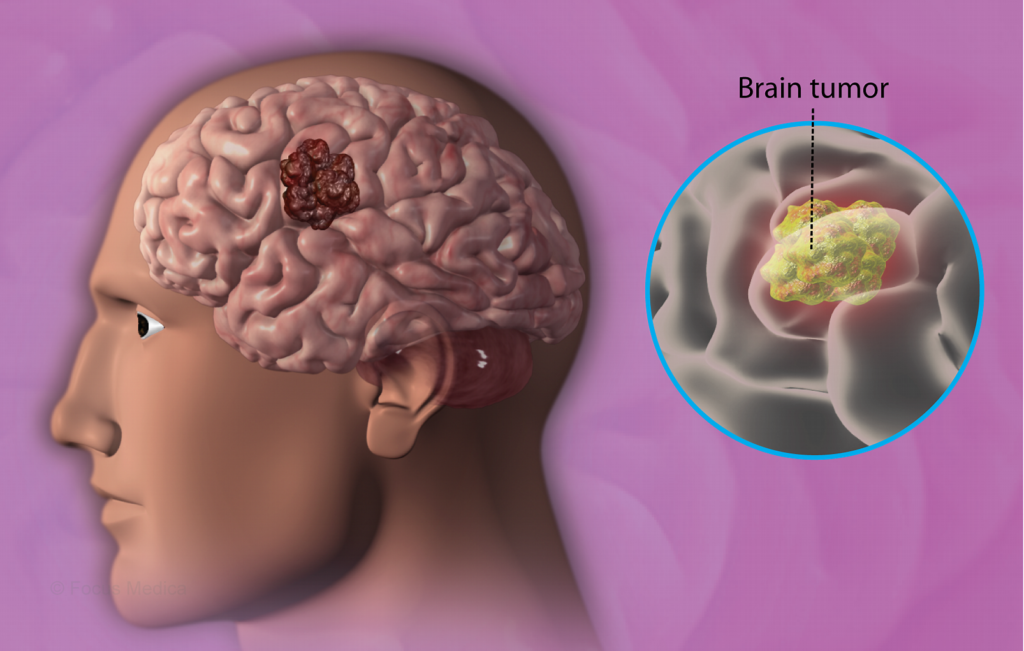Understanding Brain Tumors: Symptoms, Diagnosis, Treatment, and Prevention
Welcome to our comprehensive guide on brain tumors. This article is designed to help you understand this condition and what you can do if you or a loved one are affected by it. Brain tumors can be scary and overwhelming, but by arming yourself with the right knowledge, you can take control of your health and make informed decisions about treatment.
In this article, we will cover everything from the basics of what a brain tumor is and the symptoms to look out for, to diagnosis and treatment options. We will also discuss living with a brain tumor, prevention strategies you can use to reduce your risk and the latest research in the field.
What is a Brain Tumor?
A brain tumor is an abnormal growth of cells within the brain or the surrounding tissue. These tumors can be benign (non-cancerous) or malignant (cancerous), and can develop in any part of the brain or spinal cord. Malignant brain tumors are usually more aggressive and can invade nearby tissue, making them more difficult to treat.
Types of Brain Tumors
There are many different types of brain tumors, and they are classified based on the type of cell they originate from:
| Tumor Type | Description |
|---|---|
| Gliomas | These tumors originate from the supportive tissue of the brain and can be either benign or malignant. |
| Meningiomas | These are usually benign tumors that grow from the meninges, which are the protective coverings of the brain. |
| Acoustic neuromas | These benign tumors develop on the nerves responsible for hearing and balance. |
| Pituitary adenomas | These benign tumors develop on the pituitary gland, which regulates hormone production. |
| Metastatic tumors | These tumors are not primary brain tumors but have spread (metastasized) to the brain from other parts of the body. |
The type of brain tumor can affect symptoms and treatment options, so it is important to have an accurate diagnosis.
Brain Tumor Symptoms
Brain tumor symptoms can vary depending on the type, size, and location of the tumor. Some people may experience no symptoms at all, while others may experience several. It’s important to note that having these symptoms does not necessarily mean you have a brain tumor, but they should be evaluated by a medical professional.
Common Symptoms
Some of the most common symptoms of brain tumors include:
- Headaches: Often worse in the morning or when lying down
- Seizures: Including convulsions and blackouts
- Changes in Vision: Blurred vision, double vision, or loss of peripheral vision
- Changes in Hearing: Ringing in ears, hearing loss, or sensitivity to sound
- Nausea or Vomiting: Especially in the morning or when changing positions
- Difficulty with Coordination: Loss of balance or trouble walking
- Changes in Mood or Personality: Irritability, confusion, or depression
Less Common Symptoms
In addition to the common symptoms listed above, there are several less common symptoms that can occur:
- Memory problems
- Speech difficulties
- Trouble with reading or writing
- Weakness or numbness in the arms or legs
- Difficulty swallowing
If you experience any of these symptoms, it’s important to speak with a doctor. They can help determine if further testing is necessary to rule out a brain tumor or other condition.
Brain Tumor Diagnosis
Diagnosing a brain tumor typically involves a comprehensive medical evaluation. A doctor will begin by reviewing the patient’s medical history and symptoms, and then perform a neurological exam to assess brain function. This exam may include testing reflexes, muscle strength, memory, and coordination.
If a brain tumor is suspected, the doctor may order one or more imaging tests, such as a magnetic resonance imaging (MRI) scan or a computed tomography (CT) scan. These tests can help visualize the tumor and provide information about its size, location, and characteristics.
| Diagnostic Testing | Description |
|---|---|
| Magnetic resonance imaging (MRI) | Uses a powerful magnetic field and radio waves to create detailed images of the brain. |
| Computed tomography (CT) scan | Combines X-rays and computer technology to create detailed pictures of the brain. |
| Angiogram | Uses a contrast dye and X-rays to create images of blood vessels in the brain. |
In some cases, a biopsy may be necessary to confirm a brain tumor diagnosis. During a biopsy, a small piece of tumor tissue is removed and examined under a microscope. This can help determine the type of tumor and guide treatment decisions.
It’s important to note that diagnosing a brain tumor can be a complex process, and it may involve multiple tests and consultations with various specialists. Patients are encouraged to ask questions and seek a second opinion if needed.
Brain Tumor Treatment
After a brain tumor diagnosis, there are several treatment options available. The best course of action will depend on the type, size, and location of the tumor, as well as the overall health of the patient. It’s important to discuss all options with a medical professional to determine the best treatment plan.
Surgery
Surgery to remove the tumor is often the first line of treatment for brain tumors. During the procedure, a neurosurgeon will remove as much of the tumor as possible while minimizing damage to healthy brain tissue. In some cases, the entire tumor can be removed. In others, some cancerous tissue may be left behind if it is too close to important areas of the brain.
Radiation Therapy
Radiation therapy uses high-energy beams to kill cancer cells. This treatment may be used alongside surgery or on its own for tumors that are difficult to treat surgically. Radiation therapy may cause side effects, including fatigue and memory problems, but they are usually temporary.
Chemotherapy
Chemotherapy uses drugs to kill cancer cells throughout the body. This treatment is usually reserved for advanced or high-grade tumors or when other treatments are not effective. Chemotherapy may cause side effects such as fatigue, nausea, and hair loss.
Living with a Brain Tumor
A brain tumor diagnosis can be overwhelming and life-changing. For those living with a brain tumor, it is important to take care of both physical and emotional health. Here are some strategies for coping with this condition:
- Find support: Connect with others who have gone through similar experiences. Join a support group, speak to a counselor, or find online communities.
- Stay active: Depending on your condition, physical activity may be beneficial. Talk to your doctor about what exercises are safe for you to do.
- Eat a balanced diet: A healthy diet can help you feel better and provide your body with the necessary nutrients to fight the tumor and side effects of treatment.
- Manage stress: Stress can impact both physical and emotional health. Consider practices like meditation, yoga, or deep breathing to help reduce stress.
- Communicate with your healthcare team: Make sure you understand your treatment plan and any potential side effects. Ask questions and communicate any concerns you may have.
It is important to remember that everyone’s experience with a brain tumor is different. It is okay to ask for help and take the time to adjust to this new reality. Seek out resources and support to help you along the way.
Brain Tumor Prevention
While the exact cause of brain tumors is still unknown, there are steps you can take to reduce your risk of developing one. Making healthy lifestyle choices and avoiding certain behaviors may help lower your risk. Here are some tips for brain tumor prevention:
- Eat a healthy diet: A diet rich in fruits, vegetables, whole grains, and lean proteins can help keep your body healthy and reduce your risk of developing cancer.
- Stay physically active: Regular exercise has been linked to a lower risk of cancer. Aim for at least 30 minutes of moderate-intensity exercise most days of the week.
- Avoid exposure to chemicals: Certain chemicals used in manufacturing and agriculture have been linked to a higher risk of brain tumors. If possible, avoid exposure to pesticides and other harmful chemicals.
- Wear a helmet: If you participate in activities such as biking, skiing, or skateboarding, be sure to wear a helmet to protect your head from injury.
While these tips may help reduce your risk of developing a brain tumor, it’s important to remember that not all brain tumors can be prevented. If you are experiencing any symptoms or have concerns about your risk, speak with your doctor.
Brain Tumor Research
Research into brain tumors is ongoing, and there have been significant advancements in treatment options for those affected by this condition. Scientists and medical professionals are constantly searching for new therapies that can improve the quality of life for brain tumor patients.
One of the most exciting areas of brain tumor research is immunotherapy. This type of treatment involves using the body’s immune system to fight cancer cells. It has shown promise in clinical trials and has the potential to be an effective treatment for a variety of brain tumors.
Another area of research is targeted therapy. This type of treatment uses drugs or other substances to attack specific cancer cells without harming healthy cells. Targeted therapy is already being used to treat some types of brain tumors, and researchers are working to expand its use to other types.
Clinical trials are also being conducted to test new drugs and therapies for brain tumors. These trials aim to find new treatment options that are safer and more effective than current treatments.
Despite the progress being made in brain tumor research, there is still much to be learned about this condition. Researchers continue to study the underlying causes of brain tumors and the best ways to treat them.
If you or someone you know has been diagnosed with a brain tumor, it is important to stay informed about the latest research and treatment options. Speak with your healthcare provider to learn more about clinical trials and other opportunities to participate in ongoing research.
Frequently Asked Questions
Here are some of the most commonly asked questions about brain tumors:
Are brain tumors hereditary?
While brain tumors can run in families, the majority of brain tumors are not hereditary. If you have a family history of brain tumors, speak with your doctor about any screening or preventative measures that may be recommended.
How long does brain tumor treatment take?
The length of brain tumor treatment can vary depending on the type of treatment and the individual’s response to it. Some treatments, such as chemotherapy, may be ongoing for several months or even years. Others, such as surgery, maybe a one-time procedure. Your doctor will be able to provide you with a more specific timeline for your treatment plan.
What are the chances of recovering from a brain tumor?
The chances of recovery depend on several factors, including the type and stage of the tumor and the individual’s overall health. Some brain tumors can be successfully treated and even cured, while others may be more difficult to treat. It’s important to work closely with your healthcare team and follow your treatment plan to give yourself the best chance of recovery.
Can brain tumors be prevented?
While there is no guaranteed way to prevent brain tumors, there are steps you can take to reduce your risk. This includes maintaining a healthy lifestyle with regular exercise and a balanced diet, avoiding exposure to environmental toxins such as pesticides and chemicals, and protecting your head from injury.
Remember that early detection is key, so be sure to speak with your doctor if you experience any symptoms of a brain tumor.

